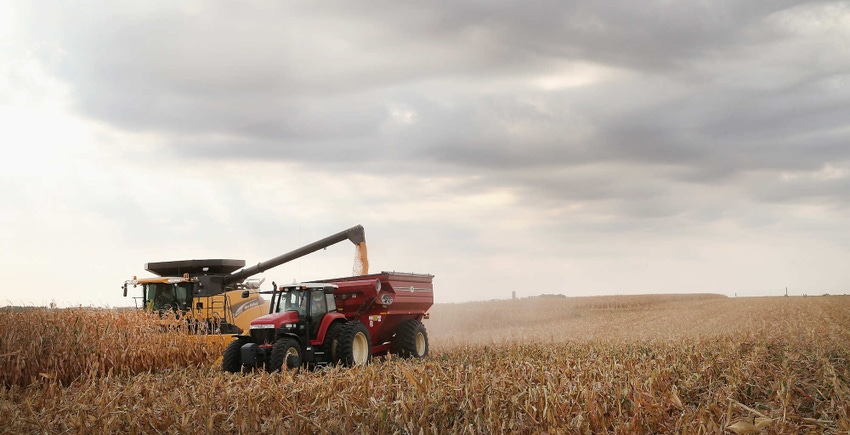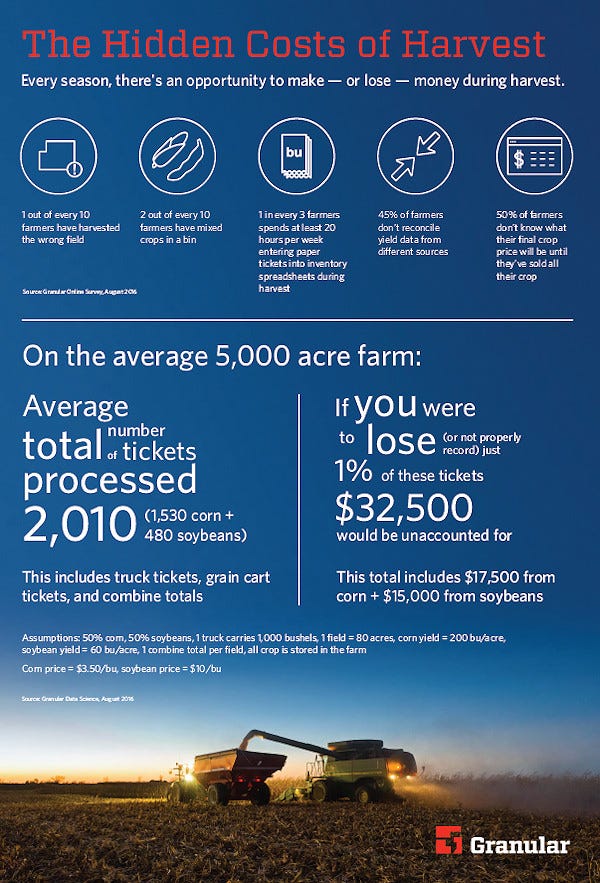October 12, 2016

Farmers hearing a lot about Big Data and how that information will help their farms, often question that conclusion. Those just getting into the tech are pulling a lot of information and sometimes they question what they'll do with the data. That information isn't going to have value until you can bring higher levels of analysis to what you're collecting.
Farm Industry News came across an interesting analysis of data from Granular Ag recently, when we sat down with Agustina Sacerdote, director of marketing. The company is a data-focused farm management system that allows farmers to analyze all aspects of their business. The company also works with customer aggregated data to identify trends and information.
Sacerdote notes that when its data experts took a look at the hidden cost of harvest the company found a range of interesting facts, including the cost of a lost scale ticket. For many farmers those tickets are paper-based, but at Granular that data is captured in real time during the season. What they learned is that there's a significant cost. "This information shows that even a single lost scale ticket can have a heavy cost," she says.
The infographic you see at the end of this story shows the costs of lost harvest tickets looking at a 5,000-acre farm. As well as some key information about how farmers get, but don't use, information now.
The average number of tickets processed is 2,010 - including 1,530 for corn and 480 for soybeans - which includes truck tickets, grain carts tickets and combine totals.
If you lose, or don't get recorded, just 1% of those tickets - that's just 20 tickets - that could add up to $32,500 that would be unaccounted for, according to the analysis. That includes $17,500 for corn and $15,000 from soybeans.
"This is a hidden cost that we don’t think a lot of farmers are aware of," Sacerdote explains.
That's just one highlight of the work Granular has done to analyze its pool of data, but also pulls back the curtain on some parts of you farm business that may be costing you income. The Granular infographic was interesting from its perspective on what farms aren't capturing as information that could be useful.
The information gathered does offer links to services and benefits of Granular, but also shows gaps in farm information management that could be costing you money. Information service companies seeking to serve agriculture all offer some form of data gathering that can help fill those gaps. Take a look at the Granular infographic below, and assess how this information may apply to your operation.
For more information on granular visit granular.ag.

About the Author(s)
You May Also Like






